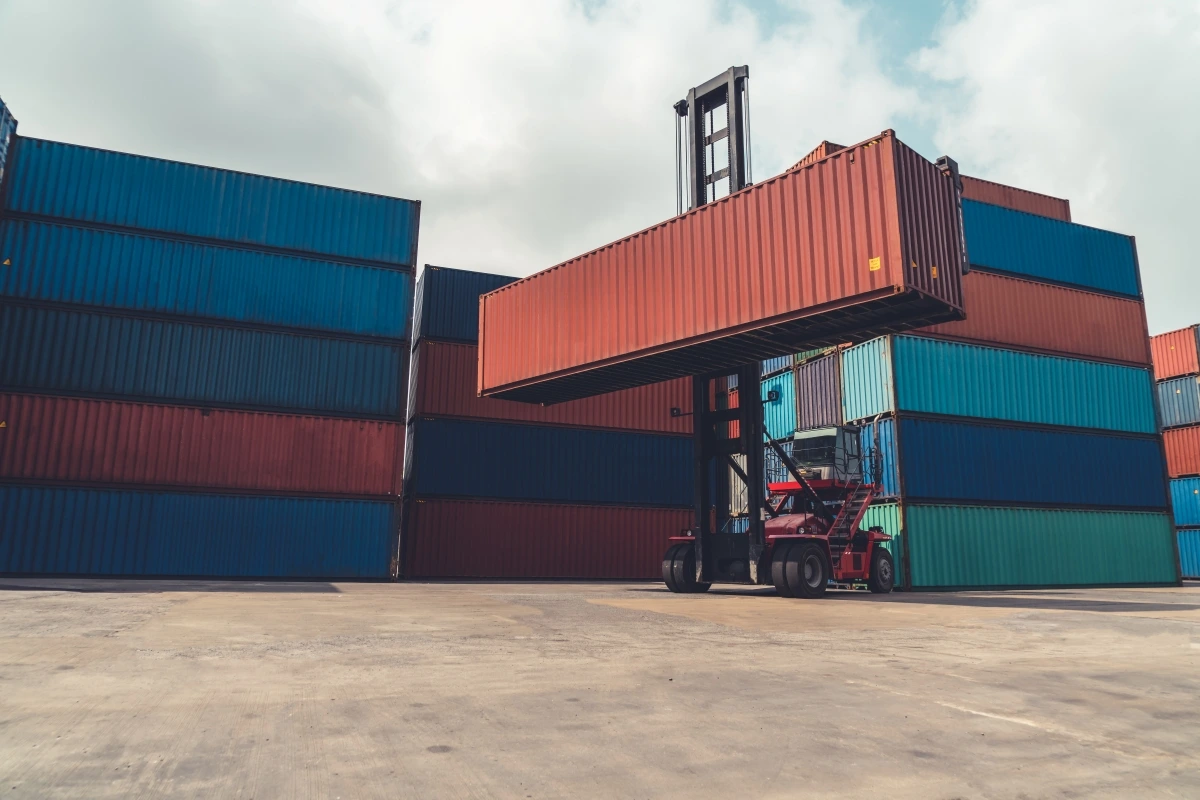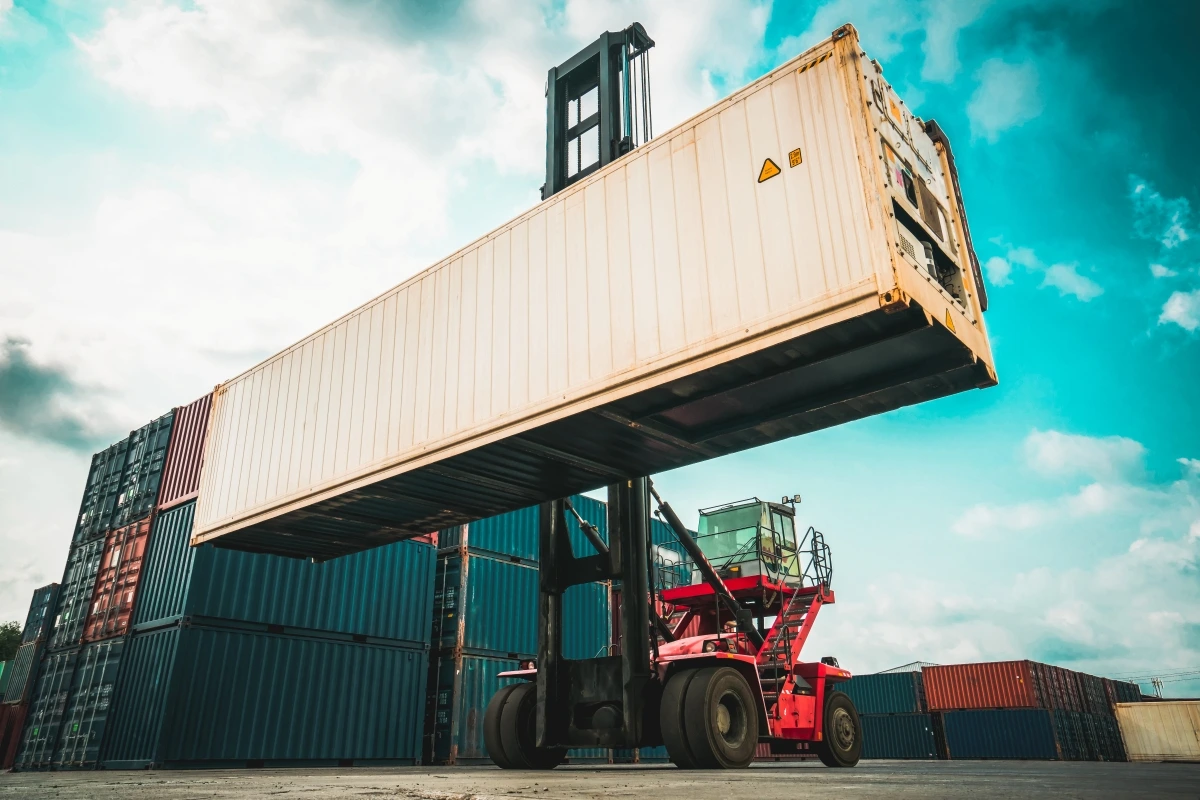
08-09-2025
Full Container Load: Benefits and Differences with LCL
In freight transport, the cargo delivered will be categorized into several types, one of which is FCL. Full Container Load, or FCL, is a type of shipment done in a huge capacity and filling one container.
Then, what is the difference between FCL and LCL? This article explores FCL in shipping. So, read this article to learn more!
What Is a Full Container Load?

A Full Container Load, or FCL, is a shipment service that uses the entire container, meaning that one container is full of goods from one sender or receiver. It can be concluded that FCL is an exclusive shipping service that uses the whole container for your cargo.
Because you will use the entire container, you can track the shipment entirely. This also differentiates FCL from LCL.
LCL, or Less-than-Container-Load, is a small-scale delivery in which one container will be filled with various goods from different senders and receivers.
Typically, FCL has two sizes: 20 feet and 40 feet. A 20-foot container usually has a length of 600 cm, a width of 235 cm, a height of 239 cm, and a capacity of 20,000 kg.
Then, a 40-foot container has a length of 1,200 cm, a width of 235 cm, a height of 239 cm, and a capacity of 30,000 kg.
Read also: Logistics Management: Functions, Benefits, & Main Components
The Requirements of a Full Container Load Service
To use a Full Container Load service, you must comply with the following requirements:
- Choose the size and type of container according to the type of goods and your needs.
- Ensure the volume of goods is sufficient because FCL is specifically for full container shipments. If the volume of your goods is less than the container capacity, you can use the LCL service.
- Complete the shipping documents and ensure that all data is accurate according to the goods being shipped. This is important to reduce the risk of delayed shipments due to problems with the documents.
- Ensure that the goods are securely packed before entering the container so that they remain safe until they reach their destination.
The Advantages of a Full Container Load Service

A Full Container Load gives many advantages for your business, such as:
1. Easier Bureaucracy
Since you are shipping a full container load, there are not too many documents to include, making it easier for customs to check. However, be sure to complete the required documents and ensure that the information is accurate so that there are no errors that could delay the shipment.
2. Safer Option
FCL shipment is seen as a safer option because you use the entire container. That way, you can have better privacy and reduce loss or damage of goods.
3. Rapid Loading-Unloading
One of the benefits of FCL is that you can control the goods delivered. Therefore, you do not need to consolidate goods at every point since you can directly unload them.
4. Faster Delivery
FCL services do not wait for other shippers to fill the container. Instead, you will use the entire container for your own goods. As a result, shipments can be made faster because the shipping company does not need to consolidate and deconsolidate goods from different shippers.
5. Flexible
As explained before, FCL has various sizes you can choose according to your needs and budget, such as 20- or 40-foot containers.
Read also: 9 Dangerous Goods and a Guide to Transport Them Safely
The Disadvantages of a Full Container Load
When FCL is compared to LCL, FCL has several gaps you must consider in sending goods, such as:
- You must pay more because you use the whole container, whether it is filled or only some spaces.
- Warehouse costs increase because the volume of goods shipped is quite large.
- The shipping process may be more complicated because you need to ship large items in a short period of time.
- You may need more equipment and crew to handle the contents of a container.
The Difference Between FCL and LCL
When talking about FCL, you may also hear about LCL, or a Less-than-Container-Load. So, what is the difference between FCL and LCL in shipping? LCL is a shipping service that combines shipments from various senders so that they can be loaded into one container.
As a result, the goods need to be unloaded when they arrive at the transit point. Unlike LCL, FCL is a single-shipper service, so you do not have to worry about late deliveries due to too many transits.
In addition, the risk of goods being lost with FCL is lower because there is no consolidation process at the transit point. Conversely, LCL has a higher risk of losing goods due to the unloading process.
In terms of time, FCL is faster because it does not have to transit for the deconsolidation of goods. Meanwhile, LCL takes longer because it requires sorting, inspection, loading, and separation of goods.
However, LCL has more container availability because you can put your goods into containers that are ready to go. On the other hand, you need to wait for an empty container for FCL services because you will be renting a full space.
Then, which one should you choose? FCL or LCL? The answer depends on your needs. If you want to ship large quantities or large items, you can choose FCL.
However, for smaller shipments, you can choose LCL so you do not have to pay for an entire container. In addition to volume, you may also need to consider shipping costs and time to choose the right service.
That concludes the information about FCL you can learn. Either FCL or LCL, you can choose the right one based on your needs and budget to make it efficient.
Aside from choosing the shipping service, you need to choose the right shipping service provider, especially if you intend to ship chemicals and LPG. Regarding this, Chandra Asri Group has a logistics solution you can rely on.
With PT Chandra Shipping International and PT Marina Indah Maritim, we serve chemical and LPG shipments with 9 vessels of 106,650 DWT. This number can increase as we grow.
Moreover, Chandra Asro Group also serves land transportation with PT SCG Barito Logistics and PT Chandra Cold Chain operating 155 trucks and warehouses. Entrust your chemical and LPG shipment to Chandra Asri Group!
Read more: Understanding Free On Board (FOB), Types, and Advantages
.png&w=3840&q=75)
.png&w=3840&q=75)